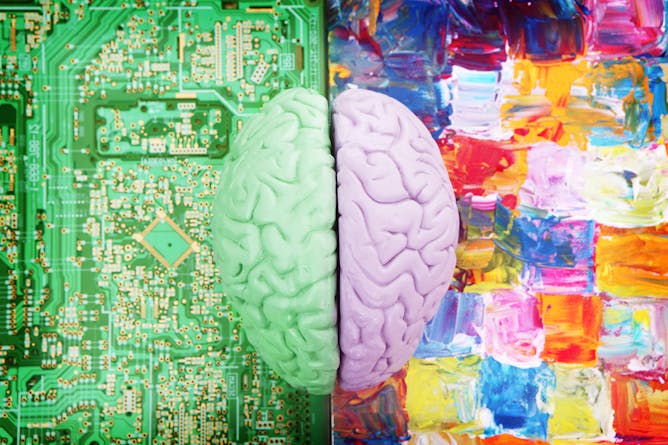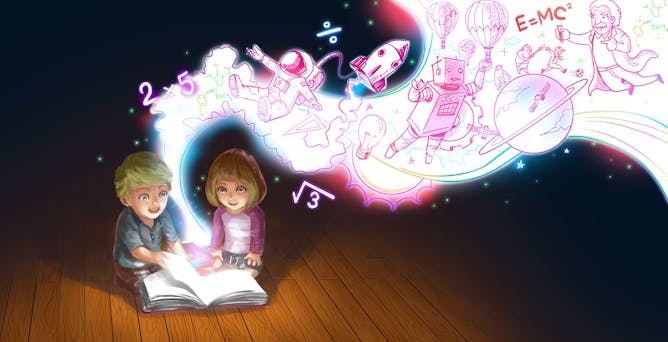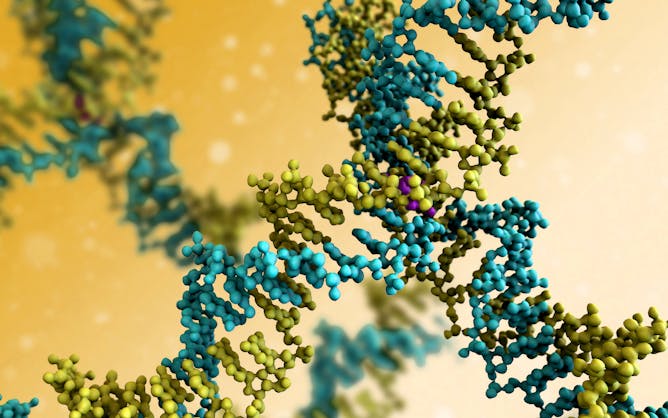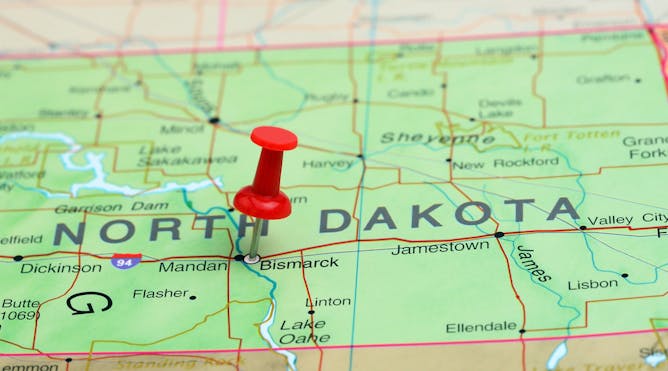|
|
|
Editor's note
|
|
How creative are you? You might not be the next Mozart or da Vinci, but creativity isn’t just about composing amazing music or painting masterpieces – it’s also about being able to make everyday decisions and solve problems. Lucy M Davies and Lynn Newton say creativity is a human quality that exists in every one of us. Gareth Loudon agrees, and believes that incorporating creativity into education could finally bridge the gap between science and the humanities.
Human bodies are made up of an estimated one million proteins and yet our DNA only provides instructions for about 20,000. So where do all the others come from? Scientists have shown that most of our proteins have extra bits added to them, as if they were wearing clothing. Pedro Beltran-Alvarez and John Greenman are trying to unravel the secrets of this protein clothing to develop a faster way to spot changes in our body such as the growth
of tumours.
The US will soon head to the polls to vote in the mid-term elections. Richard Johnson investigates the dirty tricks the two parties play to skew the results in their favour – and how a recent Republican law in North Dakota, which will make it more difficult for Native Americans to vote, could cost the Democrats, and democracy, dear.
|
|
|
Top stories
|

shutterstock
Lucy M Davies, Durham University; Lynn Newton, Durham University
Everybody can think creatively – including you.
|

927 Creation/Shutterstock
Gareth Loudon, Cardiff Metropolitan University
Creativity should be about more than just coming up with one solution.
|

UGREEN 3S/ Shutterstock
Pedro Beltran-Alvarez, University of Hull; John Greenman, University of Hull
The unique way that human proteins change after they are copied from our DNA gives scientists clues about what causes human disease.
|

The Republicans have North Dakota in their sights … and have changed the law to win it.
Shutterstock
Richard Johnson, Lancaster University
Access to the ballot has been increased and diminished according to whoever manages to win power to write the rules. Just look at North Dakota.
|
Politics + Society
|
-
Peter Beresford, University of Essex
This shift in focus on social care funding could inject some honesty into the system.
-
Mustafa Demir, Staffordshire University
With the Syrian conflict right on its borders, and Russia and Iran increasingly shaping the region's politics, Turkey is becoming beholden to NATO's enemies.
-
Nick Grief, University of Kent; Shona Illingworth, University of Kent
In the context of accelerating geopolitical, technological and environmental change, we need to radically reassess how we perceive airspace legally.
|
|
Arts + Culture
|
-
Martin Goodman, University of Hull
Writing is a solitary art. But authors shortlisted for the Booker Prize have to perform in public. Here's how this year's crop fared.
|
|
Business + Economy
|
-
Rob Wilson, Sheffield Hallam University
So far, Manchester United's poor performance on the pitch has not hurt its bottom line. But it's only a matter of time.
|
|
Environment + Energy
|
-
Cathy Daly, University of Lincoln; Jane Downes, University of the Highlands and Islands; William Megarry, Queen's University Belfast
While extreme weather conditions represent a considerable challenge globally, some communities have been living with (and adapting to) similar events for centuries.
|
|
Science + Technology
|
-
Natalie Pilakouta, University of Glasgow
New research into beetles shows larvae are stronger and grow better when raised by two parents working together than a single parent working alone.
|
|
Health + Medicine
|
-
Sophie Medlin, King's College London
Don't try this at home, kids.
|
|
| |
Featured events
|

|
East Road, Cambridge, Cambridgeshire, CB11PT, United Kingdom — Anglia Ruskin University
|

|
St Helens Road, Ormskirk, Lancashire, L39 4QP, United Kingdom — Edge Hill University
|

|
Samuel Alexander Building, University of Manchester, Oxford Road, Manchester, Manchester, M13 9PL, United Kingdom — University of Manchester
|

|
Martin Harris Centre for Music and Drama, University of Manchester, Oxford Road, Manchester, Manchester, M13 9PL, United Kingdom — University of Manchester
|
|
|
|
| |
| |
| |
| |
| |
|
|
|
|
|
|
|